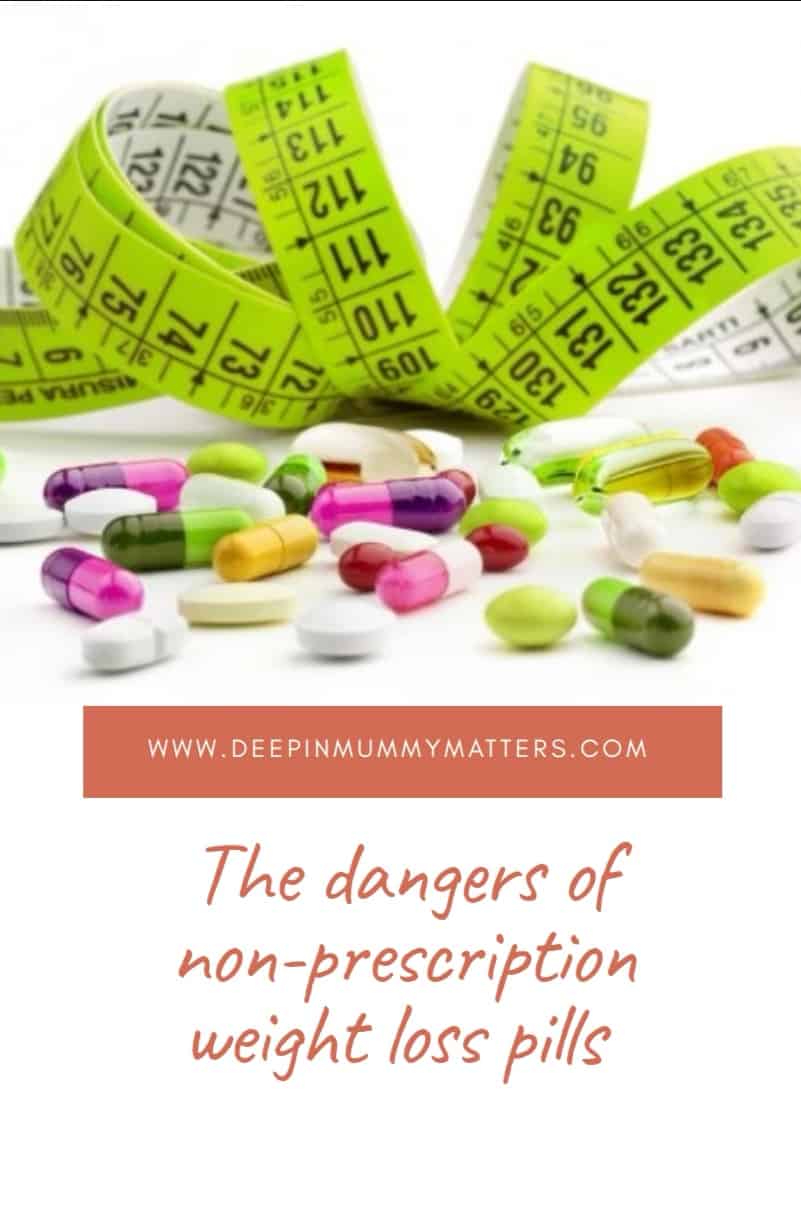For all people who want to lose a few pounds or maintain their weight, diet pills seem to be the magical answer to all their problems. Those who are too busy juggling careers, families and even a couple of projects on the side are even more so happy with nonprescription weight loss pills. After all, they promise bodies to envy with little lifestyle changes. However, what not many people know is that over-the-counter diet pills – no matter how natural they are – come with their fair share of dangers.
Prescription Weight Loss Medication and O.T.C. Diet Supplements: What’s the Difference?

When you begin your weight loss journey, you expect that at its end to feel fabulous, look beautiful, and to burst with health and joy of life. Nobody wants to get sick, experience all sorts of side effects, or, worse, drug injuries. However, adverse reactions to nonprescription weight loss pills are more likely to happen than not because these dieting supplements do not come with any regulation.
- Prescription medication for weight loss needs to go through F.D.A. approval. To date, the agency approved only five true-and-tested medicines for weight loss, but doctors only prescribe them to people who suffer from obesity and obesity-related health disorders. Unless you have a Body Mass Index of at least 30, no doctor will prescribe you these pills.
- As nonprescription weight loss medication goes, most people do not know that products marketed as dietary supplements do not fall under the “jurisdiction” and regulatory procedures of the U.S. F.D.A. unless a contains a new ingredient that requires further testing.
In other words, for all those herbal appetite suppressants, fat production inhibitors, cravings stoppers, energy/metabolism boosters, it is the manufacturers’ responsibility to ensure that a weight loss pill is safe.
Do you remember past scandals regarding F.D.A.’s massive recalls, bans, and market withdrawals of weight loss substances like Ephedra, Hydroxycut, Fen-Phen, Meridia, and others? If you do, then you know why you cannot fully trust manufacturers. Many medical and legal issues with these pills stemmed from the fact that manufacturers add dangerous pharmaceuticals into their combinations or create such medicine in unsafe settings.
In case you are currently taking any O.T.C. weight loss pill, do yourself a favour and check the F.D.A.’s list of contaminated weight loss products. You certainly do not want to take anti-seizure drugs or experimental chemicals that may cause cancer with your diet supplements.
Weight Loss Pills’ Side Effects versus Drug Injuries
We drink green tea and eat flax seeds to slow our bodies’ fat production and detoxify faster. We ingest herbal weight loss supplements containing caffeine or guarana to speed up our metabolisms and burn more calories quicker. Some people swear by appetite and craving suppressants, like fenugreek, garcinia Cambogia, yerba mate, and others. The truth is all pills of all natures and purposes can trigger some side effects in people, depending on various factors.
Some weight-loss drugs cause or correlate with a handful of adverse reactions:
- Diarrhoea;
- Nausea, vomiting, and other gastrointestinal problems;
- Headaches;
- Sleepiness and haziness;
- Agitation and sleeplessness;
- Allergy-like symptoms, skin rashes, etc.
For the sake of argument, let’s assume many people who take weight loss pills understand and accept that they might not feel peachy during the treatment. When you take anything that influences how your metabolism, glands, and hormones work, you can expect some reactions.
The problem lies with the reactions that are on the dangerous, life-threatening, and debilitating end of the scale. Even the all-praised garcinia can correlate with liver toxicity and failure in high dosages, although in rare cases. When a weight-loss drug – or any medicine for that matter – links to increased blood pressure, cardiovascular diseases, liver damage, organ failure, congenital disabilities, cancer, etc., you don’t have just a medical problem on your hands.
O.T.C. Weight Loss Pills’ Injuries Are a Matter of the Law

In both medical and legal practice, a drug injury is an adverse reaction a person experienced after taking certain medicines that led to a debilitating or life-threatening effect. Should your state of health slowly deteriorate while taking O.T.C. weight loss supplements, you should seek professional help from a personal injury attorney. Do it immediately after you stopped the treatment and received the proper medical attention for your drug injury. It is vital to get a lawyer in this case so you can receive compensation for the pain and suffering you went through or for the medical bills that you need to pay for the restoration of your health.
More importantly, the law does not absolve you of any responsibility. A personal injury attorney might not be able to help build you a case in some of the following circumstances:
- Your doctor warned you about the nonprescription weight loss pills, their potential side effects, and dangers, but you took them anyway;
- At the pharmacy, upon dispensing them, the pharmacist warned you about the potential adverse reactions linked to the supplements in question, but you disregarded the advice;
- The drug came with all the proper information, sufficient description of side effects, manufacturer’s warnings and disclaimers, dosage recommendations, etc., but you overlooked them.
It may be hard for an attorney to obtain compensation for your health issues in such cases, but it does not mean you shouldn’t try if the O.T.C. weight loss pills you took severely disrupted your health and your life.
Bottom Line
Most people go through life carrying the flag of the “illusion of invulnerability.” It means that they believe something wrong cannot happen to them even if it happened to other people. This illusion is what drives many of us to take unregulated medication that we know next to nothing about to lose some pounds fast.
Instead of risking your health, talk to your physician about any supplement you want to take for weight loss. Depending on your age, gender, health status, B.M.I., and other factors, a supplement could lead to grave consequences! Even if it helped your friend lose weight with no fuss.

